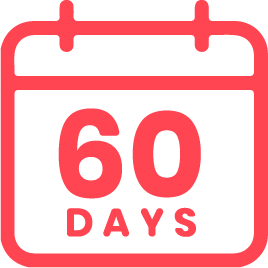why shop manta sleep
Tired of Waking Up Tired? Here Are 7 Things You’re Doing Wrong (And How to Fix Them)
Do you feel groggy and fatigued in the morning, even when you prioritize getting 8 hours of sleep?
It’s common to take a little while to reach peak alertness after waking up — but if your tiredness consistently extends well into the morning, it’s likely that your sleep quality is to blame.
Fortunately, your sleep quality is largely something you can control.
Here are 7 things you may be doing wrong before bed that could be affecting your ability to get quality shuteye (and how to fix each one):
1. Drinking Alcohol Before Bed
While it may seem like indulging in a nightcap before bed helps you sleep, alcohol can actually interfere with your sleep cycles.
When you drink alcohol close to bedtime, you’ll generally fall asleep easily… but you’ll never enter your deepest sleep stage. And when you don’t get into a deep sleep, also known as REM sleep, you’ll wake up feeling exhausted.
Having a drink close to bedtime can also cause you to wake up in the middle of the night once the alcohol wears off.
To wind down before bed, try having a calming herbal tea instead.
2. Not Shutting Down Your Electronics
All of your electronics — including your TV, phone and computer — emit blue light, which is a type of light that tells your body to wake up. This is helpful in the morning, but much less helpful when you’re trying to sleep.
Exposing yourself to blue light in the 1-2 hours before you head to bed can severely impact your ability to fall asleep because it inhibits your body’s melatonin production.
To avoid blue light, you have a couple of options: you can either shut off all your screens for a couple of hours before you hit the hay or try blue-light blocking glasses.
Blue-light blocking glasses can help to reduce the amount of blue light you’re exposed to. However, if you can, shutting everything down and enjoying a book or some conversation is a better way to spend your pre-sleep hours.
3. Skipping Exercise
Getting regular exercise can help your overall sleep quality and increase the amount of time you spend in deep sleep. Because of this, studies have shown that people who exercise are less likely to struggle with insomnia.
Exercise can benefit sleep for many reasons. For one thing, expending energy during the day can leave you feeling more tired and ready for sleep. Also, regular exercise is shown to reduce anxiety and stress, which are both common causes of sleep problems.
In general, it’s better to work out in the morning because late-night exercise could impact your ability to fall asleep due to exercise-induced adrenaline. However, most studies have shown that exercise at any time is beneficial to sleep — so if nighttime is the only time you can squeeze a workout in, that’s okay.
Try going for a jog or bike ride today, and see the impact it has on your sleep tonight!
4. Consuming Caffeine in the Afternoon
You know that your afternoon latte helps you to get through the dreaded afternoon slump, but did you know it’s likely affecting your ability to sleep at night?
Caffeine has a half-life of about 5 hours, which means that even if you don’t feel the effects of your coffee at night, it’s likely still in your body and affecting your ability to relax.
Relying too much on caffeine can create a vicious cycle because you aren’t able to sleep well at night, and then you need to have more and more caffeine in the morning to wake up!
A caffeine cut-off hour of 1 or 2 o’clock is a good way to make sure every drop of espresso is out of your system by the time your head hits the pillow.
This week, try implementing a caffeine cut-off time and see how it affects your sleep.
5. Keeping Your Bedroom Too Warm or Too Bright
Most people sleep best in a room that is cool and completely dark.
If you can’t achieve perfect blackout, you can use a sleep mask that blocks out 100% of light for the same results. As for temperature, studies show that 65-68° F is the ideal sleep temperature.
Another thing to consider is the noise level in your bedroom. If your room is noisy, using a white noise machine can help you to create a blissful ambiance, making it easier to fall and stay asleep.
6. Eating a High-Sugar Dessert
We know… desserts are one of the best parts of life. However, having too much sugar too close to bedtime could interfere with your sleep.
When you eat carbohydrate-containing foods, especially those that don’t also contain fiber or protein (looking at you, cupcakes), your blood sugar will spike quickly and fall quickly, like a roller coaster.
To avoid a blood sugar crash that wakes you up in the middle of the night, try having a dessert that also has some protein (like a piece of dark chocolate and a handful of nuts).
7. Not Using a Weighted Blanket
Unless you’re a practicing monk, you’ve likely been hearing more and more about the benefits of weighted blankets lately — one of which is helping with sleep.
Weighted blankets induce sleep by activating deep pressure touch, which encourages the production of serotonin in your body. Serotonin is one of your happy hormones (and it’s also a precursor to melatonin, the hormone that helps you sleep).
If you’re someone who tosses and turns a lot in the night, a weighted blanket may be the solution you’ve been looking for to get more restful sleep.
Ready to Stop Messing up Your Sleep?
There are many things you may be unintentionally doing wrong that could be affecting your quality of sleep.
Try a few of the above tips this week, and watch your morning grumpiness transform into feeling rested and refreshed!
Sources:
(1) “Debunking Sleep Myths: Does Alcohol Help or Hurt Your Sleep?" Sleep.org, www.sleep.org/articles/debunking-sleep-myths-alcohol-help-hurt-sleep/. Accessed 16 Oct. 2019.
(2) Bradford, Alina. “How Blue LEDs Affect Sleep." Live Science, 27 Feb. 2016, www.livescience.com/53874-blue-light-sleep.html.
(3) Johnson, Jon. “ How long does a cup of coffee keep you awake?” Medical News Today, 13 May 2019, www.medicalnewstoday.com/articles/321784.php
Woke up feeling unrested despite 7-8 hours of sleep? 🤔
Here's what you're doing wrong.
#sleep #sleepingtips #mantasleep
Disclaimer: The information contained in this website or provided through our blog, e-mails, or programs is for informational purposes only. It is not intended to be a substitute for medical advice, diagnosis or treatment that can be provided by your healthcare professionals.













